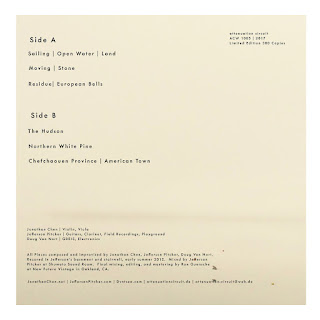Interview with Dodó Kis
1. To begin a musical path is often to go through stages of different changes to embellish, eliminate and formulate anew your own definition of it? How did it start for you? And what where the stops on the way?
Yes, I had different chapters of challenges throughout the years. As a child, I played different instruments and my teachers really wanted to push me to pursue an instrument with which I can make a career. (in Hungary music education is taken very seriously, almost competitively). Nonetheless I stuck to the recorder because my recorder teacher was the one who had an open minded approach to music and arts, and he introduced me to the avant-garde, contemporary music and different compositional and improvisational techniques and styles.
Later, when I was studying at the Conservatory of Amsterdam the challenges shifted around the “politics” within the music industry. I started to find a deeper connection with music-theater makers, people who believe in interdisciplinary ways of collaboration, and most importantly in the realm of improvising musicians. Finding my own path and following it up with integrity came with many sacrifices, but ultimately I’m happy with the experimental/unusual journey I’m taking.
2. What is your influence when it comes to the variety of the music you create at the moment?
Inspiration comes in many shapes and forms. I always thought of myself as a politically, societally involved person, I like my art to make a statement, to trigger, inspire or provoke. Therefore I would say that inspiration and influence comes mostly from my observations of the world around me. Next to that, if I have to say it more concretely I draw inspiration from Bjork, Nina Simone, Einstürzende Neubauten Isaac Asimov and Stanley Kubrick.
3. How do collaborations work for you?
I prefer to like the people I work with. I think in order to go deep in the making process and create something meaningful it is best if you have a personal link to the others.
I enjoy a kind of mini-democracy when it comes to creative collaboration. Everybody involved has something to add and nobody is expendable. Leadership is shared and tasks are divided fairly, playing to the strength of those involved.. Everybody feels comfortable to speak their mind at any given moment. Conversations next to a drink can be as important to the collaboration as nailing the music in the practice room.
4. When in doubt or a road block what or who do you refer to? Is there a manifesto of some sorts that you could establish?
When it comes to road blocks in an artistic project or collaboration I tend to be very pragmatic. Making a list of priorities (in my head or on paper), taking apart the project and analyzing all the building blocks; which elements could be changed, which ones are non negotiable. Sooner or later you find the key as to what you have to abandon or change in order to move forward. If it is a personal artistic roadblock, I like bouncing off ideas with one or two trusted friend/colleague of mine. I think that the process of verbalizing the internal struggles, the process itself of trying to explain something complex to another human being is a way to find a better understanding of the core of the issue and hopefully it is the beginning of finding a solution.
5. The medium is the message as it was said once – what is your relationship between the tools you are using and the composition?
For me the message is above all. The artistic goal is more important than the tool. If in the making process it turns out that a performance/piece of music is best served by me standing silent the whole time while holding a spatula for example, then that is what it’s gonna be. I don’t have to necessarily play my musical instrument just for the sake of playing it.
6. How does your cultural background or beliefs affect your work, especially at the moment when the global socio-political situation forces us to make certain choices?
My personal instrumental sound-ideal is definitely influenced by folk music (Hungary has a rich folk music tradition). I have a holistic view on our life in this world, body and mind are connected, and we are connected to the natural world around us; this is maybe another way of reasoning why I enjoy working on interdisciplinary projects. Culturally I think of myself as European, I have many different building blocks of culture that I’ve picked up by having travelled around and collaborated with people from different countries and backgrounds. I consider myself lucky that in these covid-times I’m stuck in Amsterdam which is a very colorful city. On the other hand I wish I had more access to nature nearby.
7. Plans for the future
Well, I truly hope that the restrictions around Corona are resolved soon, unfortunately that is halting many of the plans that I’ve been nurturing for a while. No amount of live-streams and recordings can replace the euphoric feeling of playing for a live audience. In the future I wish to make projects that take longer than a couple of weeks, I have a longing for slowing down and actually taking the time to go in depth when taking on a new collaboration. But to also mention some concrete examples, I’m at the moment working on a new project with Tobias Klein on bass clarinet, actress/singer Joske Koning and video maker Eric de Clerqc, we are making a series of video installations reflecting on EU-politics, I’m working with duo Boi Akih on a new world-music/jazz album, and I’m working again with my art-rock band Jerboah.



Comments
Post a Comment